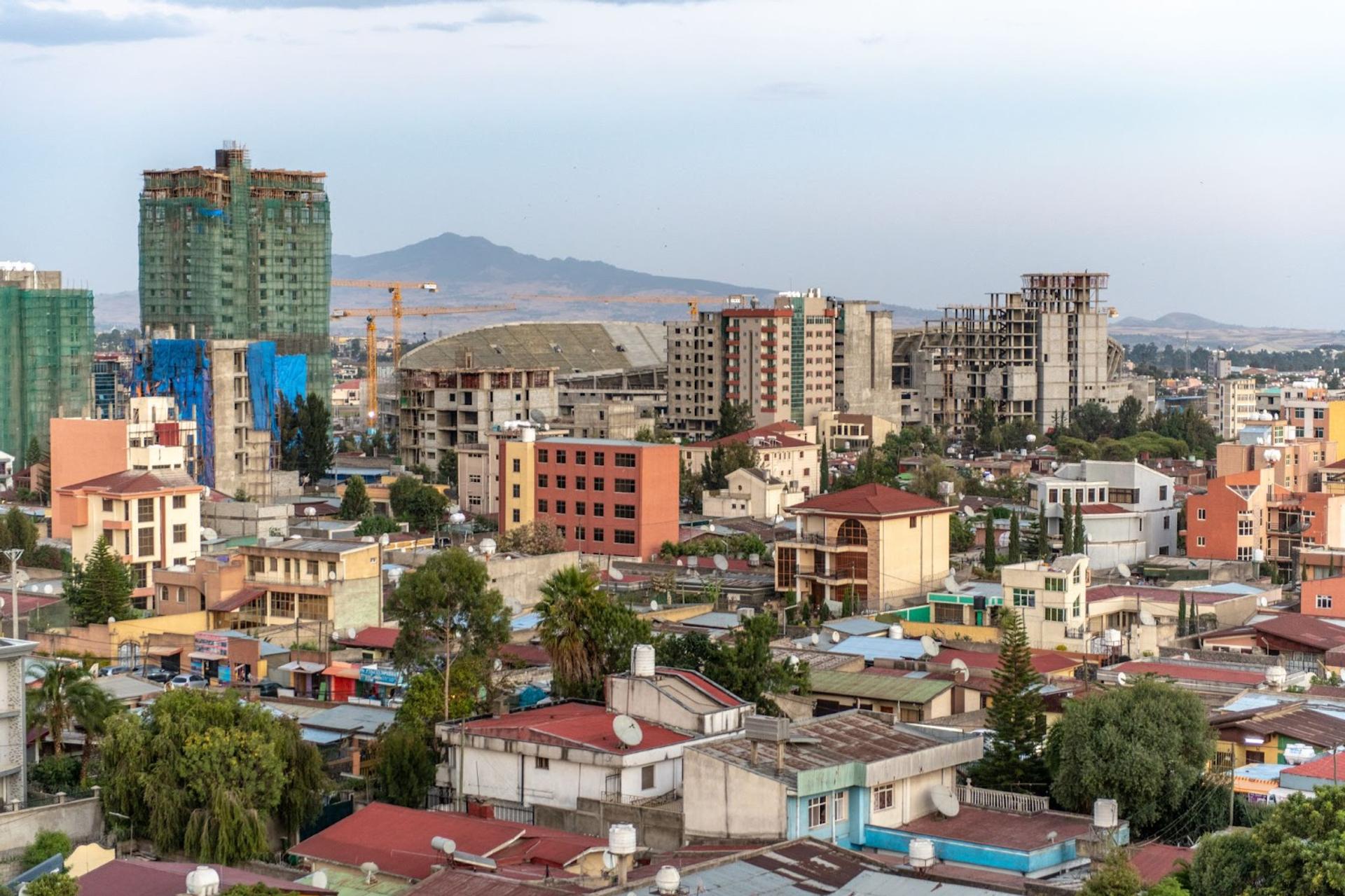The News
ADDIS ABABA — Ethiopia’s plan to allow foreigners to buy real estate in the country for the first time is the latest move aimed at opening up its beleaguered economy and attracting foreign direct investment.
Prime Minister Abiy Ahmed, who has sought to liberalize the country’s state-run economy since taking office in 2018, announced the policy shift on March 23. “We will introduce a law that will allow foreigners to own properties,” he said on state TV, but did not say when the proposed legislation would be brought to parliament.
Ethiopia previously banned foreign property ownership based on political and economic concerns. The architects of Ethiopia’s socialist revolution of 1974 were replaced by an authoritarian administration that oversaw a command economy and held power until Abiy took office. That regime was wary of loosening controls due to fears over any outside influence on the country’s sovereignty.
The country’s political history in recent decades, and its status as one of just two African countries never colonized by Europeans, left it out of step with other nations on the continent where real estate and lucrative franchises are often owned by a few powerful families and their foreign partners.
There were also fears that opening the real estate market could work against locals, some of whom could be priced out of the market.
Know More
Abiy had made some headway in loosening state control of the economy. For example, Ethiopia has invited international investors to take stakes in the telecoms and banking sectors in recent years, though that has had varying degrees of success. Ethiopia has opened up its telecoms and banking sectors over the past six years as part of his long term drive to attract foreign investment.
Ethiopian authorities are most immediately concerned about the country’s dwindling foreign currency reserves and surging inflation. National Bank of Ethiopia data suggests the reserves can barely cover a month’s worth of imports, a dangerously low level that impacts many sectors of the economy from imports of crucial economic inputs like fertilizers for farmers to essential pharmaceutical products.
The conflict in the northern Tigray region that ended one year ago, alongside others in the Amhara and Oromia regions, have also taken a heavy toll on the country’s economy and deterred investors.
The shortage of hard currency fell so low last year that Ethiopia was unable to service its debt obligations. It defaulted on a loan from private international creditors for the first time in decades, dealing a severe blow to its hope of becoming more attractive to foreign investors.
Samuel’s view
The impending change on foreign property ownership marks a seismic shift. It’s part of Abiy’s larger economic reform agenda to liberalize key sectors of the Ethiopian economy.
But the policy is also an attempt to tackle a short term problem. The government believes foreign property ownership may generate more international investment for Ethiopia, and enable authorities to raise taxes, while also generating competition to revive the local private real-estate market.
“I think it has the potential to bring much needed forex into the economy,” Solomon Assefa, a local property developer, told me. “The luxury segment is already saturated and can use foreign buyers, but I don’t think Ethiopia is attractive enough for foreigners to procure houses compared to destinations like Dubai.”
Much of Ethiopia’s attraction for foreign investors will stem from cheap labor and the state offering subsidized electricity.
The foreign ownership move helps to explain the government’s rationale for providing prime city-center plots for construction of luxury apartments. Property throughout the capital, Addis Ababa, has been allocated to real estate developers over the past year. As part of allocation agreements, private developers will reserve 30% of new housing units for a public-private partnership with the state.
In January, the finance ministry floated an international tender seeking partners to construct over 78,000 affordable housing units in Addis Ababa in the coming years. The government plans to raise funds through auctions. Widespread demolitions have been carried out in the capital to make way for those investments. And that’s a sign of what may lie ahead. Ethiopians who end up being evicted to make way for auctioned properties stand to lose the most as the new policy is rolled out.
Room for Disagreement
“If war doesn’t stop, if killing doesn’t stop, if tearing down people’s houses doesn’t stop, who wants to invest in Ethiopia?,” an Ethiopia-based international investor, speaking on condition of anonymity due to a fear of censure by the government, told Semafor Africa.
The View From Oromia
Ethiopia’s largest region, Oromia, looks set to spearhead property development in the country. A new city called Sheger City is to be built in the region, with a new airport, which is one of the country’s biggest infrastructure projects. Modeled after the Egyptian satellite city of New Cairo, its construction commenced last year. Ethiopian authorities hope to complete it by 2027 along with the new international airport that is expected to serve approximately 100 million passengers annually. But the Ethiopian government has not disclosed the building cost.
Notable
- Ethiopia is set to continue talks with the IMF after a team from the Fund concluded its mission on Tuesday without reaching an agreement on a request for support. Ethiopia’s last lending arrangement with the Fund expired in late 2022.

